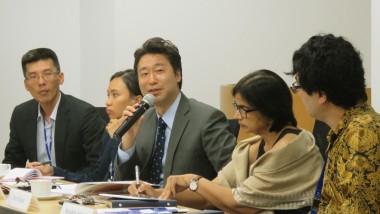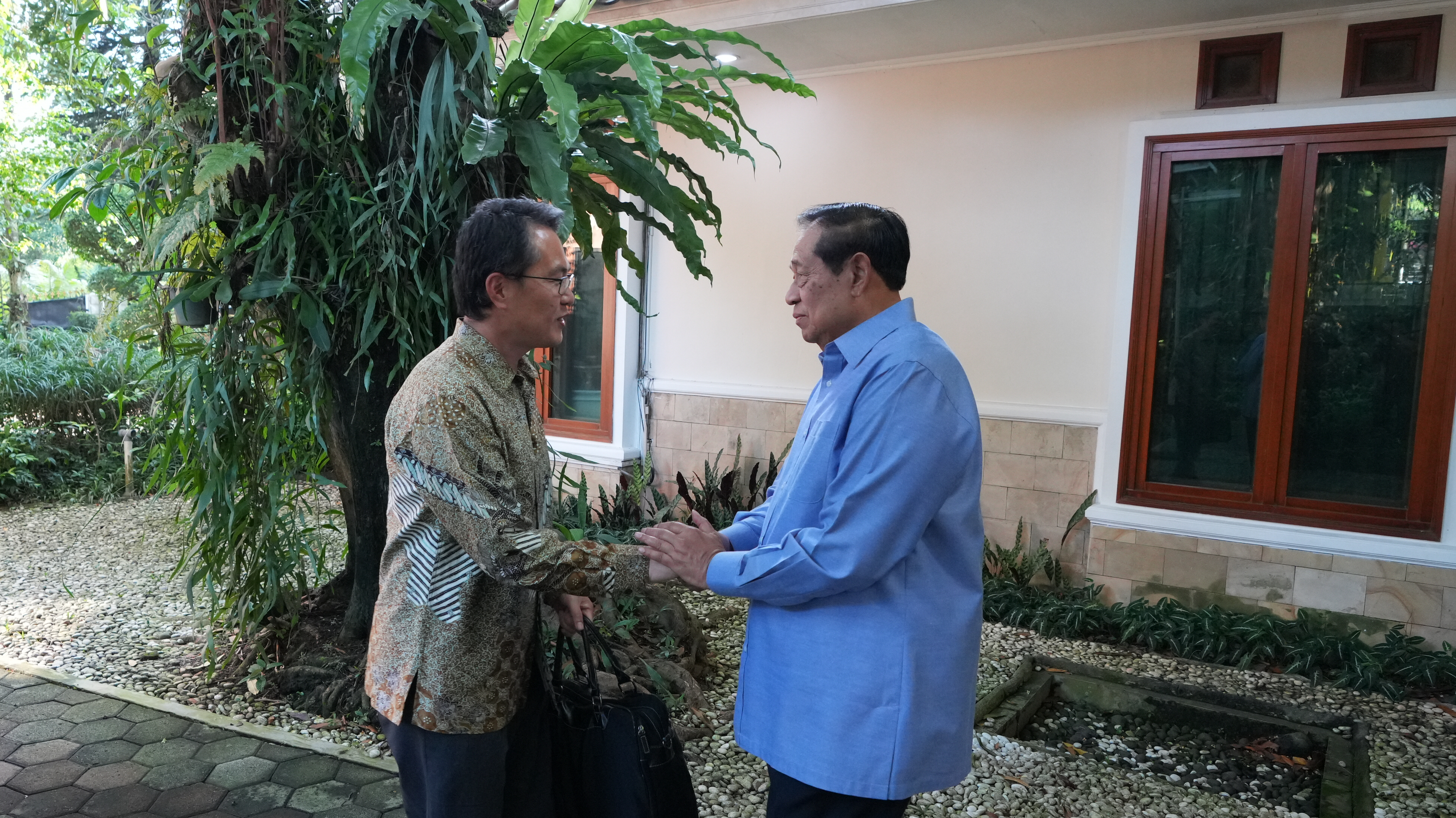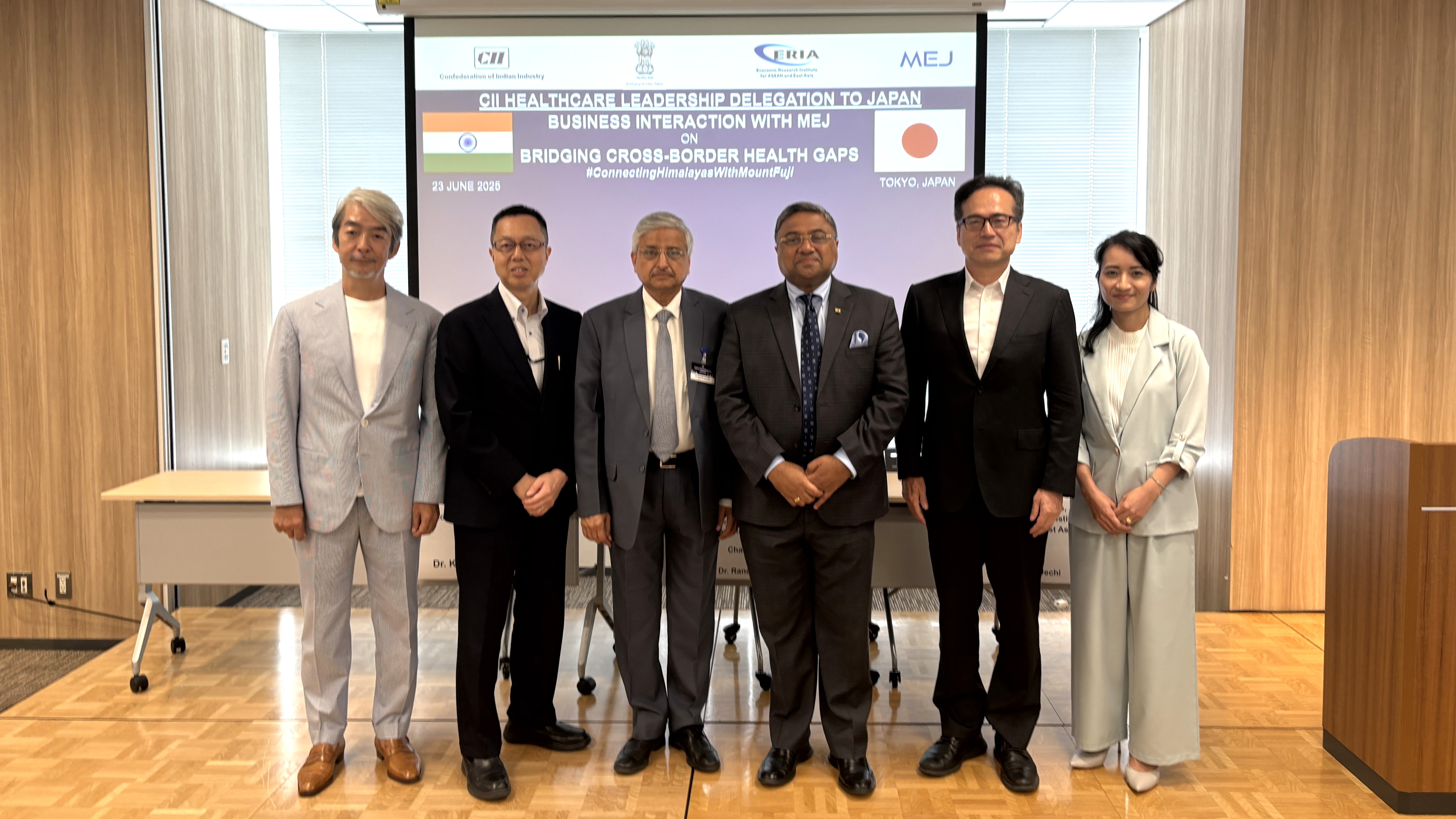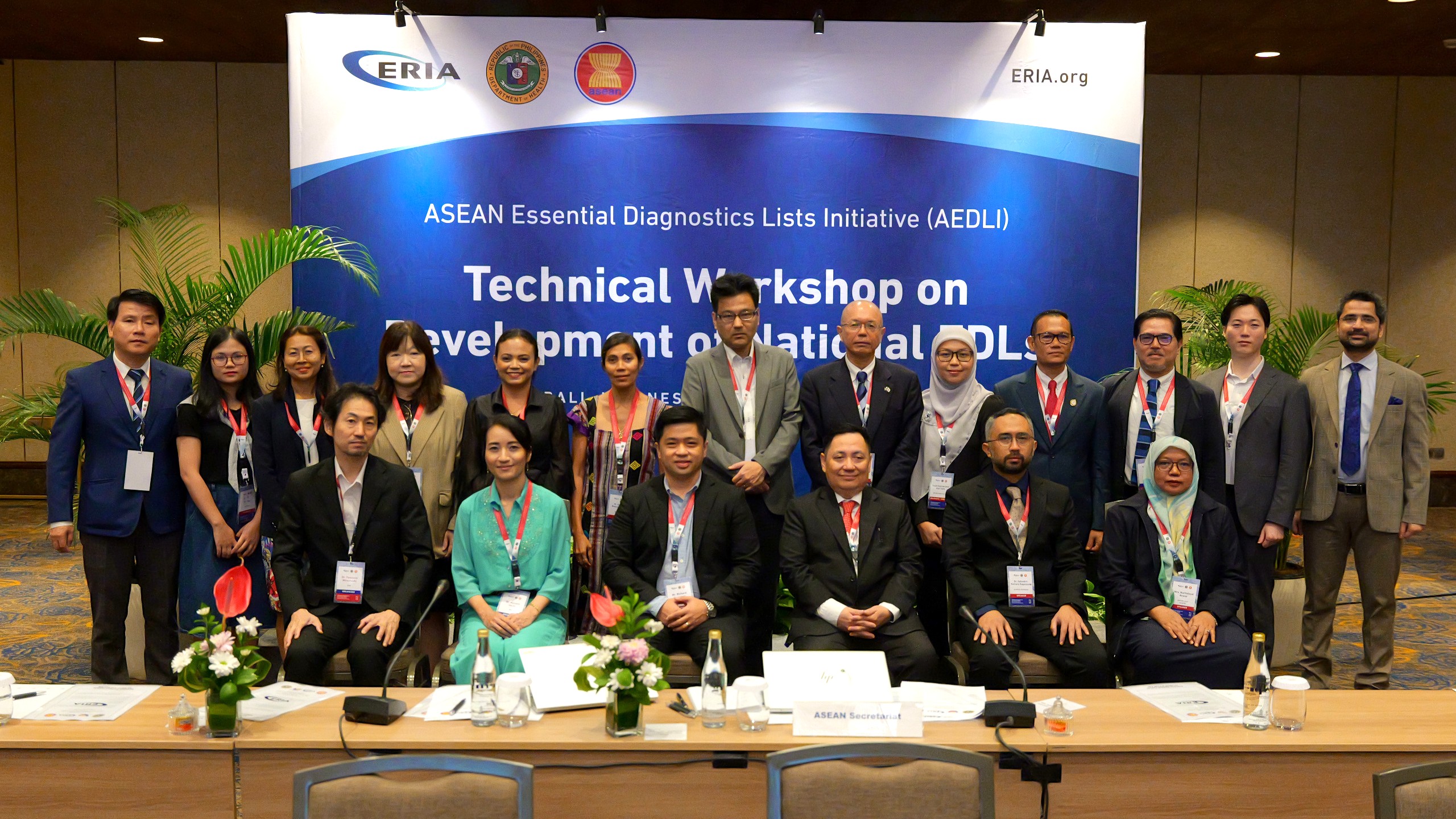ERIA-OECD Joint Seminar: OECD Regional Economic Outlook 2018
Date:
24 July 2018Category:
-Topics:
-Share Article:
Print Article:
Jakarta, 24 July 2018: ERIA welcomed the Organisation for Economic Co-operation and Development (OECD) to present an update to the OECD’s Economic Outlook for Southeast Asia, China, and India 2018. This publication, originally released in November of last year, has been updated and recently relaunched with a focus on promoting e-commerce.
Kensuke Tanaka, Head of Asia Desk – OECD Development Centre, and Prasiwi Ibrahim, Economist – OECD Development Centre, presented the main findings of the report, which highlights the finding that growth is expected to remain strong in 2018-2019 in Southeast Asia, China and India. They identified six macroeconomic trends, including that domestic demand is an engine for growth, inflation is gaining traction, and optimism in capital markets has softened.
Three related challenges were also discussed: the impact of rising interest rates in the United States and other advanced economies, implementation of infrastructure projects, and advancing trade integration amid rising protectionism. On digitalisation, the speakers remarked that there has been an immense growth of information and communications technology use, in spite of huge disparities within the region. They were optimistic about the impact of e-commerce but noted that infrastructure development and accessibility must be improved in order for e-commerce to reach its full growth potential.
ERIA scholars were deeply engaged in the conversation and offered remarks after the presentation. Dr Masahito Ambashi, Economist at ERIA, argued that, in spite of its potential in ASEAN, most growth in the e-commerce sector is anticipated to occur in China. He also commented on the challenges of trans-border e-commerce, particularly digital security and protectionism. Anita Prakash, Director General of Policy Design at ERIA, noted the need to further integrate policy into the OECD report. She remarked that trade and economic integration outlooks must consider internal factors – such as the challenges of infrastructure, health and social security – and policy disruptions from external sources.
The conversation was moderated by Lurong Chen, ERIA Economist. The event opened with welcome remarks by Izuru Kobayashi, COO of ERIA, and concluded with a reception in ERIA’s Information Centre.








